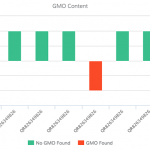Kauai is the 4th largest island of Hawaii. It is lush and green with a 12-month growing season. Kauai is also where many of the outdoor scenes were filmed for Jurassic Park, the movie where a science experiment ran amok.
Syngenta is the inventor and primary patent holder of the pesticide Atrazine. Syngenta’s host country Switzerland as well as the rest of the European Union prohibits the use of Atrazine. The CDC website says one of the primary ways that Atrazine can affect your health is by altering the way that the reproductive system works. Studies of couples living on farms that use Atrazine for weed control found an increase in the risk of pre-term delivery. According to the CDC, Atrazine caused liver, kidney, and heart damage in animals; it is possible that Atrazine could cause these effects in humans, although this has not been examined.
In 2006 and 2008, dozens of children and teachers at Waimea Canyon Middle School on Kauai were sickened and sent to local hospitals. Syngenta denied that the adjacent fields of experimental GMO corn and the related pesticide spraying was the culprit. The Hawaii State Teachers Association filed a temporary restraining order against Syngenta to force them to stop spraying next to the school. Once Syngenta stopped spraying those fields and since then there have been no further incidents. Atrazine and other chemicals have been found in the drainage ditches leading from the fields into coastal waters and residents on the west side of Kauai reported massive sea urchin die offs in coastal areas. Obstetricians, pediatricians and other local physicians have expressed concerns about what they believe to be unusually high levels of normally rare birth defects and certain types of cancers. Parents report their children have higher than normal incidents of nose bleeds and respiratory problems. All this has been reported in his blog by Gary Hooser, a Kauai council member who co-introduced Bill 2491, late last year.
According to Hooser, Bill 2491 contains three basic provisions:
- Pesticide and GMO disclosure;
- Buffer zones around schools, hospitals and homes; and
- A county sponsored and paid for comprehensive study of health and environmental impact.
The Kauai County Council passed into law Bill 2491 after they overrode a veto from Kauai’s mayor. Bill 2491 does not ban pesticides nor does it ban GMOs, it simply requires disclosure according to Hooser. The mayor of Kauai is not the only local to oppose Bill 2491. Opponents say the studies that the county will pay for (through higher taxes), are redundant to EPA, USDA and FDA activities regarding the use of both GMO plants and pesticides.
On January 10th, DuPont, Syngenta and Dow filed suit trying to overturn Bill 2491 as being invalid. In a joint statement that was published in the Wall Street Journal they said “It (the bill) arbitrarily targets our industry with burdensome and baseless restrictions on farming operations by attempting to regulate activities over which counties in Hawaii have no jurisdiction.”
I don’t think the bill “arbitrarily” targets the pesticide and GMO industry. I think it specifically targets the pesticide and GMO industry and that local governments should have the ability to regulate pesticides and agricultural activity. It’s their backyard, it’s their health, their commerce (or lack there of), it’s their lives and they are willing to finance it. Simply, it’s their decision!
Bill 2491 almost seems like a local zoning law, however, and a lot of anti-GMO consumer activist groups have jumped on the Bill 2491 bandwagon and it has become a battle ground for the GMO companies who will not yield any ground to additional regulations for fear that the local movement on GMO zoning will snowball on them. Perhaps this is why Bill 2491 is dubbed “The Pesticide Bill” by the local media, but The Huffington Post calls the same bill the “GMO Bill.”
General Mills, Post and Kellogg’s have all announced non-GMO versions of their core brands of cereals. Why? Because there is a market for them! The organic market continues to gain market share, with food processors and retailers helping accelerate the growth. Kauai happens to have a fairly large organic farming community, which is at risk from cross contamination from experimental GMO plants that are being sprayed with pesticides to determine the amount of pesticides needed. This is a point that even Hooser failed to point out.
I am not opposed to all GMOs and feel they offer certain benefits (drought resistance for example) that should be utilized when appropriate. However, the use of GMOs for the sole purpose of selling more pesticides is not something I support. And if I felt threatened by them, I’d like to have the ability, with the consensus of my community, to prevent them from being used in or very near my backyard.
References:
1. CDC’s website with Atrazine information, http://www.atsdr.cdc.gov/PHS/PHS.asp?id=336&tid=59




